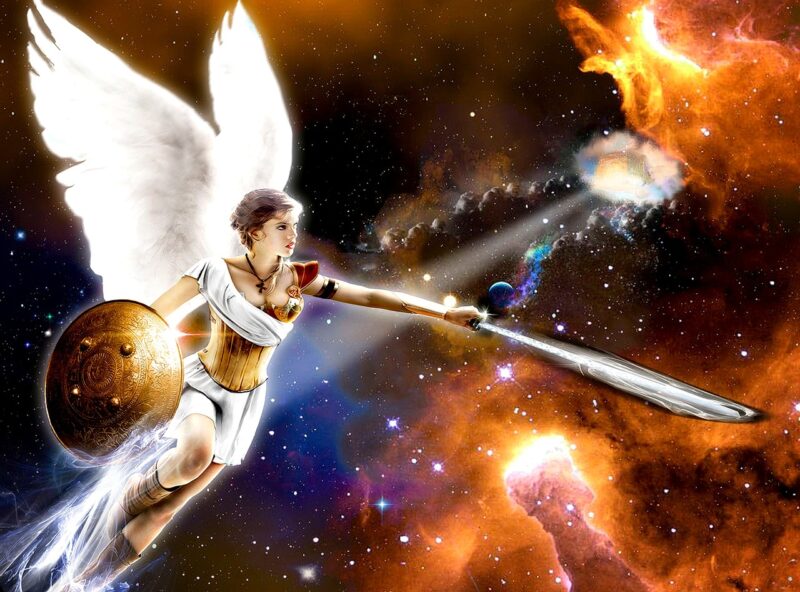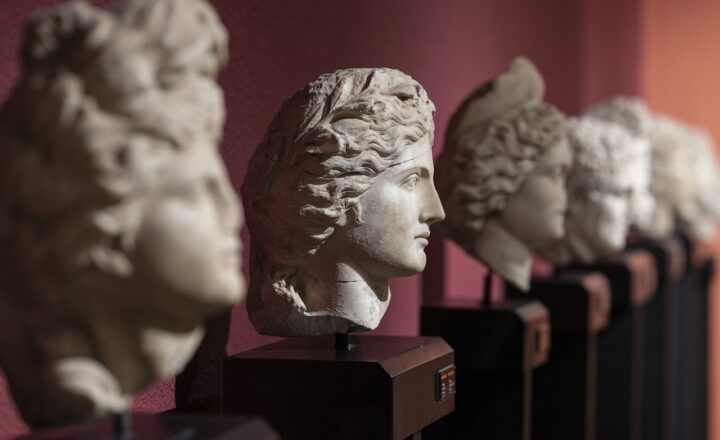The Role of Heroes in Mythology and What They Teach Us About Humanity
November 16, 2024

Throughout history, myths and legends have served as a lens through which cultures explore their ideals, values, and aspirations. At the heart of many of these narratives are heroes. These larger-than-life figures not only perform extraordinary feats but also embody the hopes, fears, and moral codes of the societies from which they emerge. This article delves into the role of heroes in mythology, examining the lessons they impart about humanity, morality, and the human experience itself.
1. Definitions and Characteristics of Heroes in Mythology
Before analyzing the role of heroes, it’s essential to understand what constitutes a hero in the context of mythology. Generally, a hero is characterized by the following traits:
- Extraordinary Abilities: Heroes often possess attributes that set them apart from ordinary people, whether through strength, intelligence, or divine favor.
- Courage and Valor: They face seemingly insurmountable challenges and confront their fears to protect their people or pursue a noble cause.
- Moral Integrity: Heroes typically represent the moral compass of their society, standing up for justice, truth, and what is right, even at personal risk or sacrifice.
- Transformation: Many heroes undergo a journey, evolving from ordinary individuals into legends through trials that test their resolve and character.
These attributes not only create compelling narratives but also establish a guide for what societies consider honorable and just.
2. The Archetypal Hero Journey: A Path to Enlightenment
The concept of the hero’s journey, popularized by mythologist Joseph Campbell, outlines a universal narrative pattern across cultures. The stages of the hero’s journey typically include:
- Call to Adventure: The hero receives a challenge that disrupts their ordinary world and compels them to act.
- Trials and Challenges: As they navigate obstacles and trials, heroes often encounter mentors, allies, and foes, each contributing to their growth.
- The Crisis: A pivotal moment often coincides with confrontation, self-doubt, or a near defeat; this challenges the hero’s resolve and beliefs.
- Triumph and Transformation: The hero emerges victorious, changed by their experiences, and often returns with newfound wisdom or gifts that benefit their community.
This journey illustrates profound lessons, reflecting human resilience, the struggle between good and evil, and the value of personal growth. The hero’s journey serves as a metaphor for our life experiences, encouraging us to confront our challenges fearlessly.
3. Iconic Heroes in Mythology and Their Teachings
Across cultures, iconic heroes exemplify various virtues and teachings. Here are some notable examples:
Achilles – Greek Mythology
Achilles, the formidable warrior of the Trojan War, embodies the human struggle with mortality and pride. His story teaches us about:
- The Consequences of Wrath: Achilles’ anger leads to tragedy in both his life and those around him, demonstrating the importance of managing emotions and seeking reconciliation.
- The Nature of Honor and Glory: His pursuit of glory highlights the tension between personal ambition and collective well-being, prompting us to consider our motivations in seeking recognition.
King Arthur – British Mythology
King Arthur symbolizes the ideals of leadership, unity, and justice. His legacy imparts:
- The Power of Unity: Arthur’s assembly of the Knights of the Round Table teaches that collaboration among diverse individuals can create a powerful force for good.
- Self-sacrifice for the Greater Good: His willingness to make personal sacrifices for his kingdom underscores the importance of altruism in leadership roles.
Mulan – Chinese Mythology
Mulan, who disguises herself as a man to take her aging father’s place in the army, exemplifies bravery and honor. Her story teaches us:
- Breaking Gender Norms: Mulan challenges traditional gender roles, illustrating that courage and capability are not confined by societal expectations.
- The Strength of Family Loyalty: Her decision to protect her family showcases the depth of familial love and sacrifice, resonating across cultures.
These stories resonate with audiences across generations, encouraging reflection on our values and guiding us in our own life journeys.
4. Modern-day Heroes and Their Mythic Qualities
In contemporary times, we see a blend of ancient mythological heroes with modern figures such as activists, leaders, and everyday champions. These modern heroes, such as Nelson Mandela, Malala Yousafzai, and other global figures, possess qualities that echo those of traditional heroes:
- Courage in the Face of Adversity: Like their mythological predecessors, modern heroes confront systemic challenges and fight for justice despite significant risks.
- Empathy and Compassion: They often center their actions around the well-being of communities and marginalized groups, reflecting the moral integrity celebrated in mythological narratives.
- Transformational Impact: Their actions inspire collective movements, reinforcing the idea that one individual’s courage can transform society, paralleling epic tales from mythology where heroes change the fate of nations.
This evolution of heroism shows that the lessons of mythology remain relevant as we navigate our world’s complexities and challenges.
5. Conclusion: The Enduring Legacy of Heroes
Heroes in mythologies serve as reflections of human nature and societal values, transcending time and culture. Our continuous fascination with these figures speaks volumes about our quest for meaning, identity, and guidance. They teach us profound lessons about bravery, sacrifice, morality, and resilience, encouraging us to embody these qualities in our own lives.
In an increasingly complex world, we must seek out the hero within ourselves and in our communities. By recognizing and nurturing these qualities, we not only honor the legacy of the past but also pave the way for future generations. The stories of heroes remind us that anyone, regardless of their origins, has the potential to inspire change and make a meaningful impact—just like the heroes of old.
Ultimately, the role of heroes in mythology cements their place as timeless figures who illuminate the paths we navigate in our pursuit of meaning and harmony in society.







